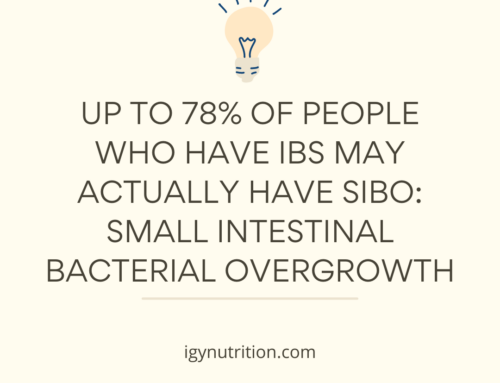Ladies, this one is for you. Is your “time of the month” really more like a “time of the once every few months?” Or “time of the once every two weeks?” Maybe your cycle feels like a faucet, with migraines and unbearable cramps in tow. Or perhaps it’s light – concerningly light.
The health of your cycle depends on your sex hormones, like estrogen, progesterone, and testosterone (yes, women have testosterone too).
Several other bodily processes depend on your sex hormones as well. Your weight, mood, digestion, and energy levels each interact with the sex hormones.
And, you guessed it – gut health affects sex hormones too. Let’s take a look at progesterone in particular.
All About Progesterone
Progesterone may be less-known than estrogen and testosterone, but it’s just as important!
Like estrogen, progesterone contributes to reproductive health in both men and women. It’s of particular importance to female menstruation.
Progesterone is necessary for ovulation (release of an egg, which causes a period).
It is also critical to the production of cortisol and thyroid hormones – both of which are vital to your energy levels.
Low progesterone may cause:
● Headaches
● Weight gain
● Estrogen dominance
● Endometriosis
● Low libido
● Constipation
● Loss of bone density
● Loss of periods or irregular cycles
Too much progesterone may cause:
● Mental health issues
● Weight gain
● Cravings
● Decreased ability to build muscle
● Heavy periods
In summary, keeping a healthy progesterone balance is particularly important for your fertility, menstrual cycle, and overall health.
What role does gut health play in progesterone levels? Let’s take a look.
Gut Health and Progesterone
First of all, healthy digestion is essential for the absorption of nutrients needed to produce hormones like progesterone.
Additionally, toxins that harmful bacteria produce – called lipopolysaccharides, or LPS – affect the body systemically. If the ovaries are exposed to too much LPS, they may struggle to produce enough progesterone.
This LPS excess is a slippery slope – low progesterone causes constipation, which may further stimulate dysbiosis, starting the ovary-damage cycle again.
If you’re concerned about your progesterone levels, contact an endocrinologist, monitor your periods, and of course – support your gut health. Check out our blog on how to test for dysbiosis if you’re interested in taking a further step.
Best of luck on your digestive wellness journey – and tune in for part 3, all about testosterone!




